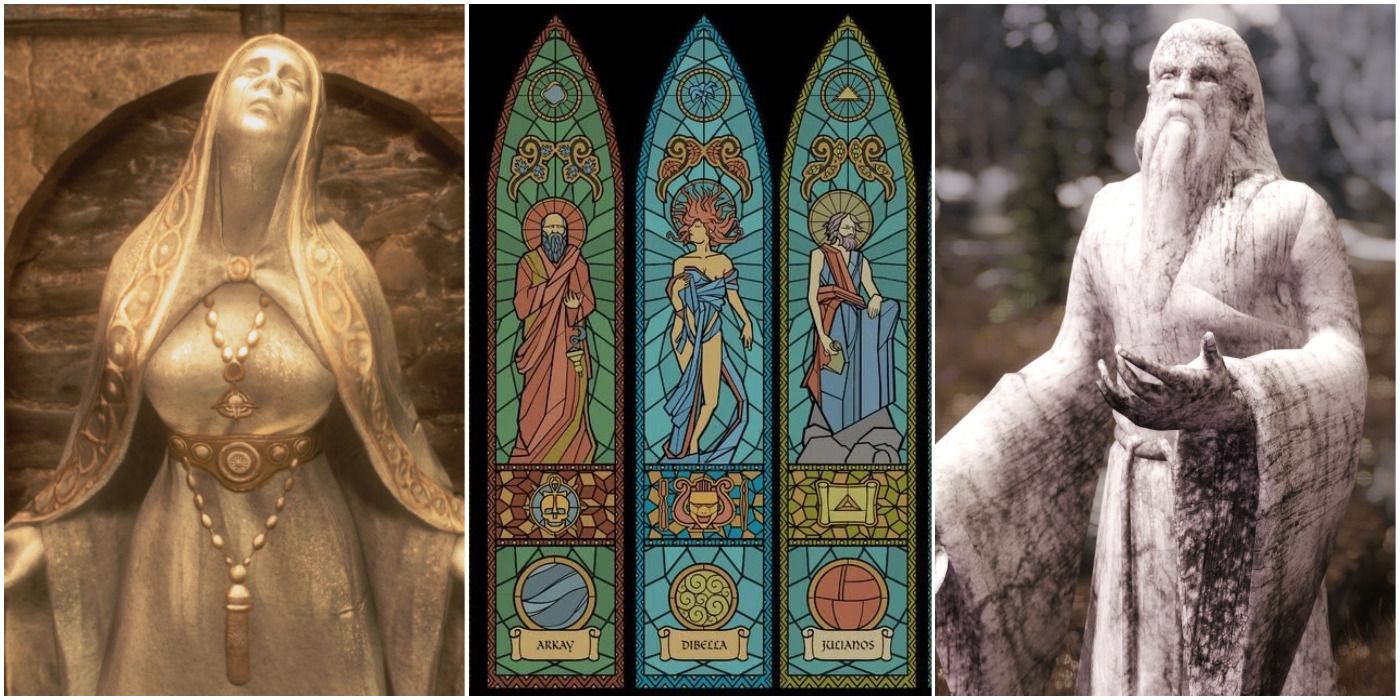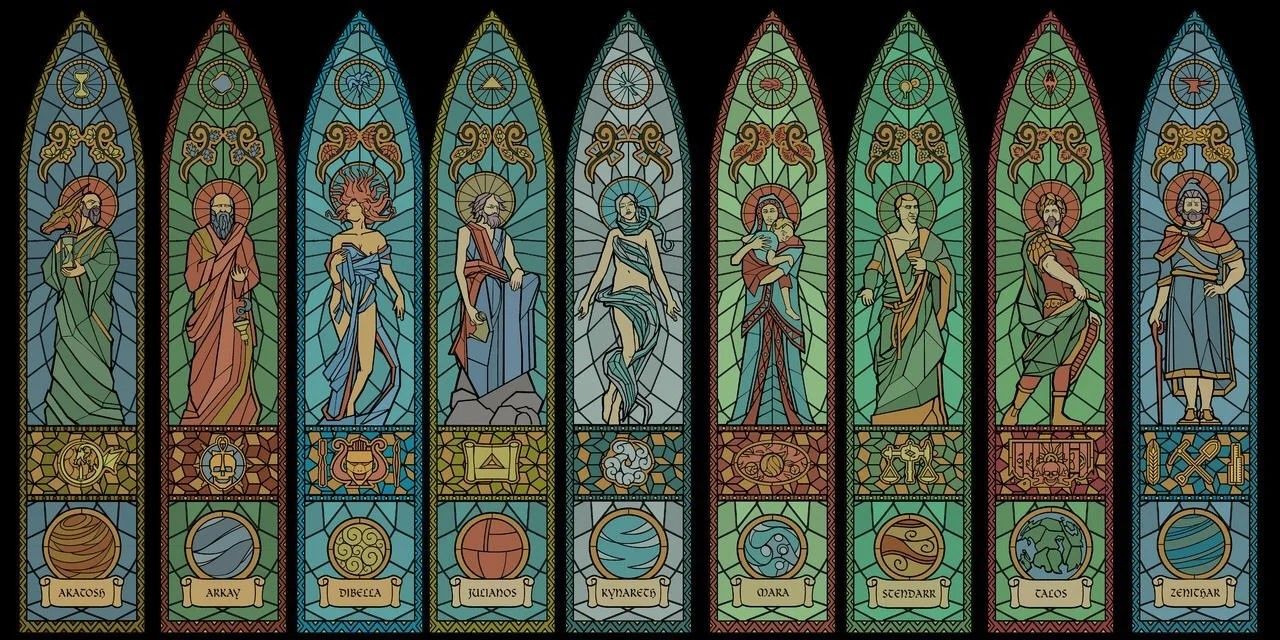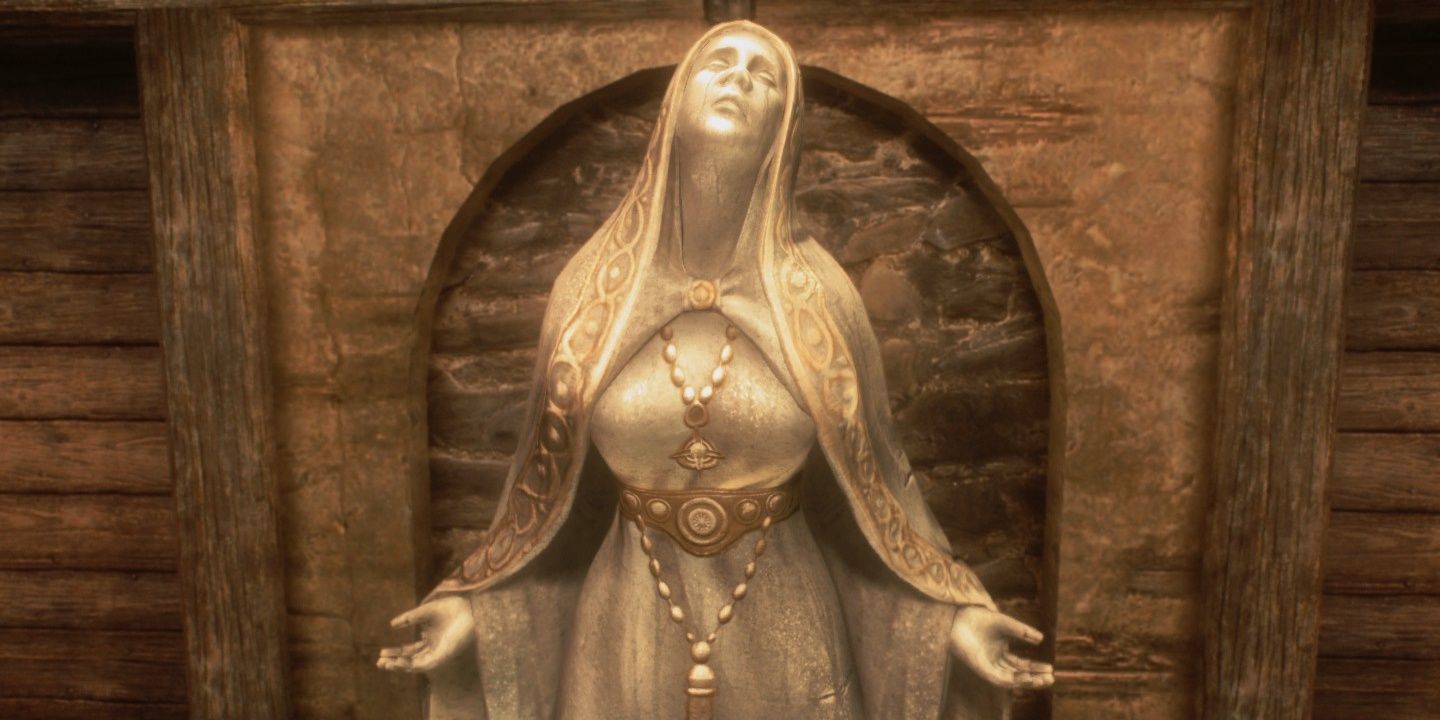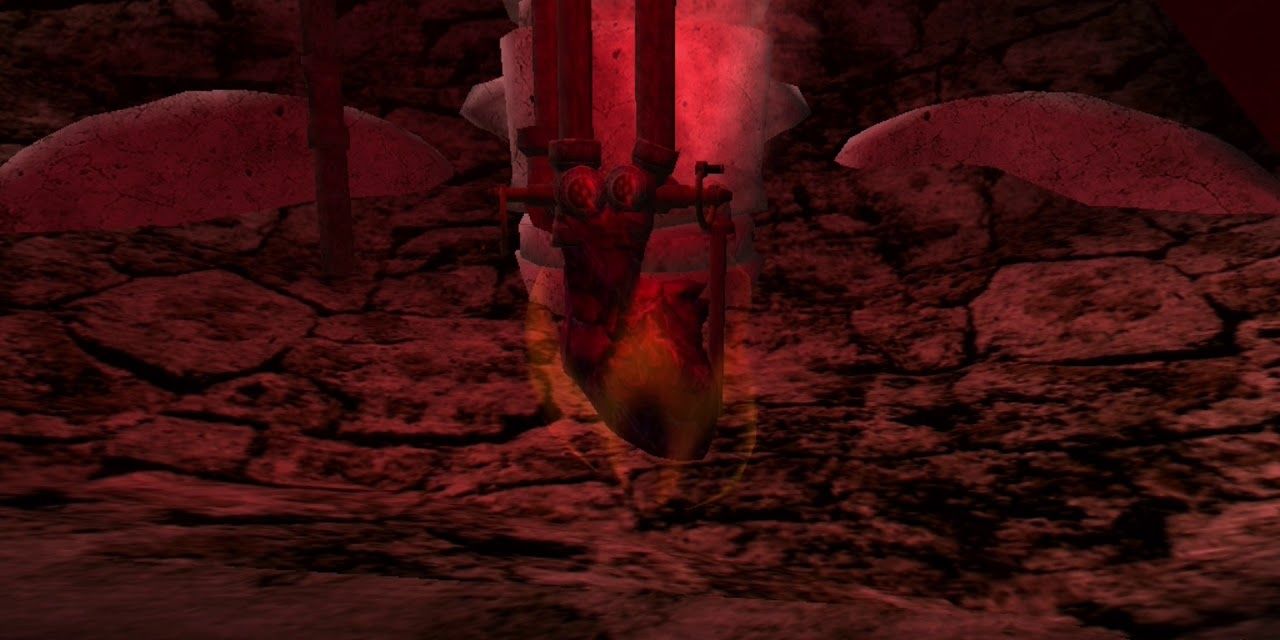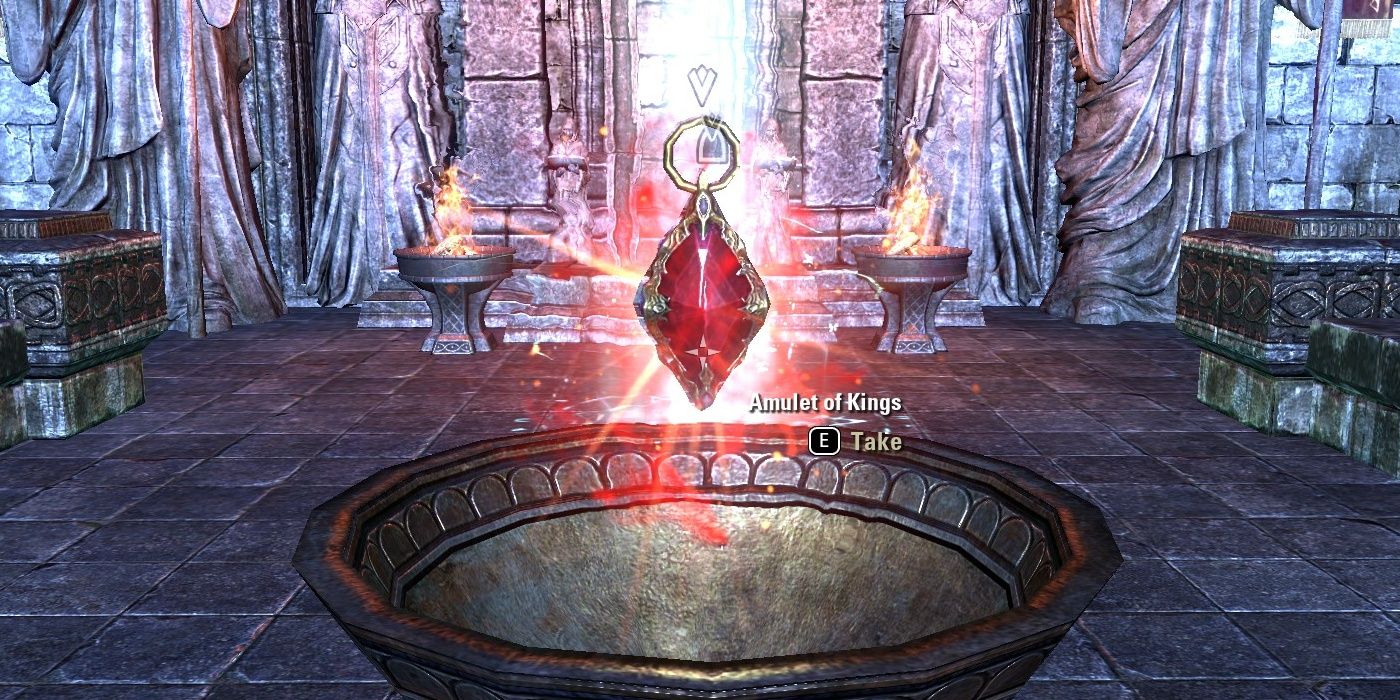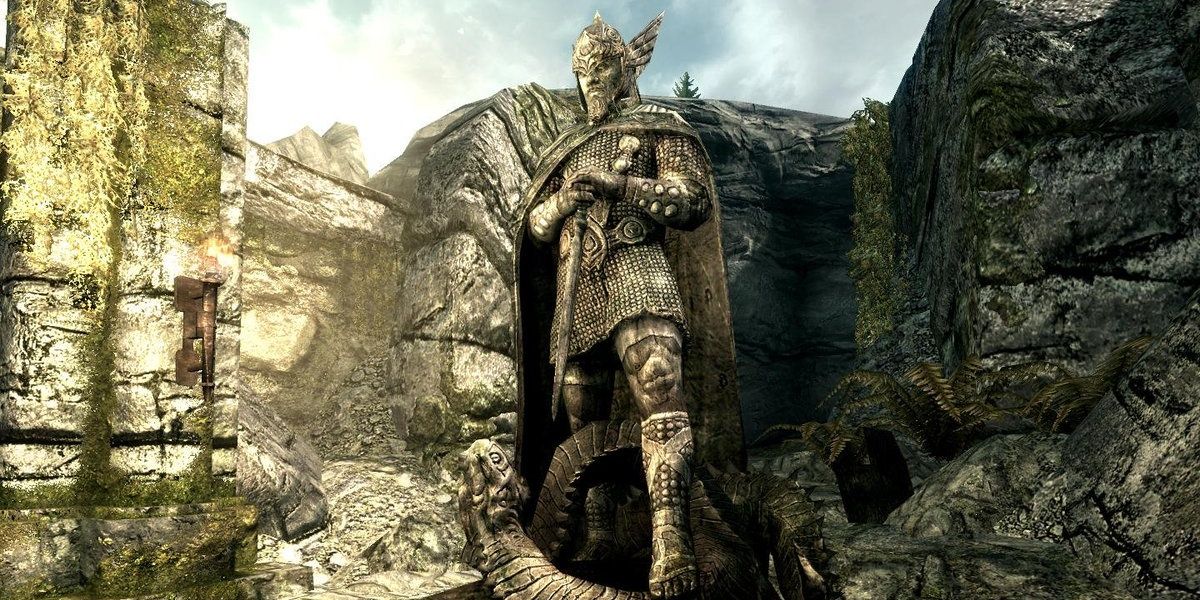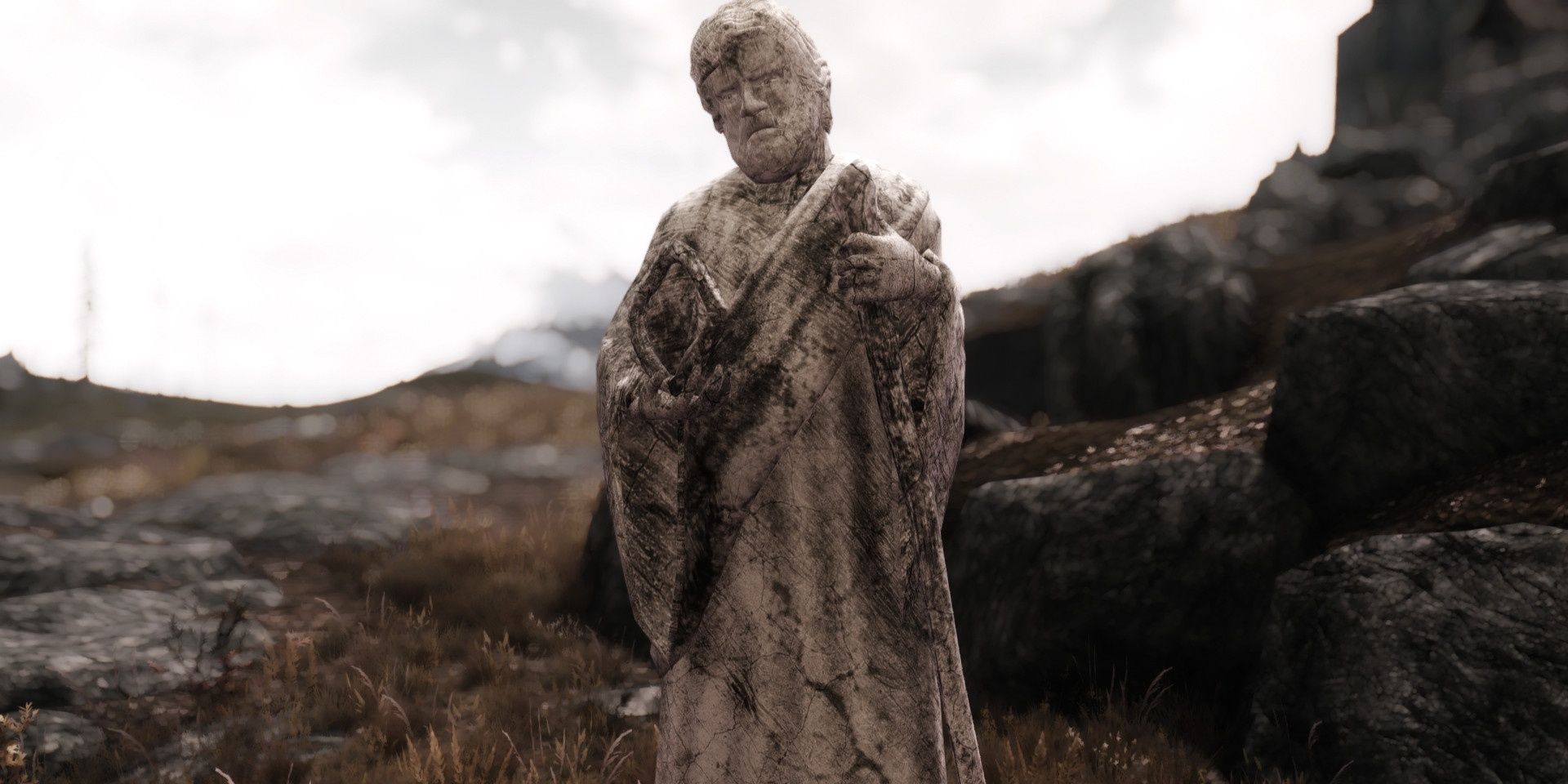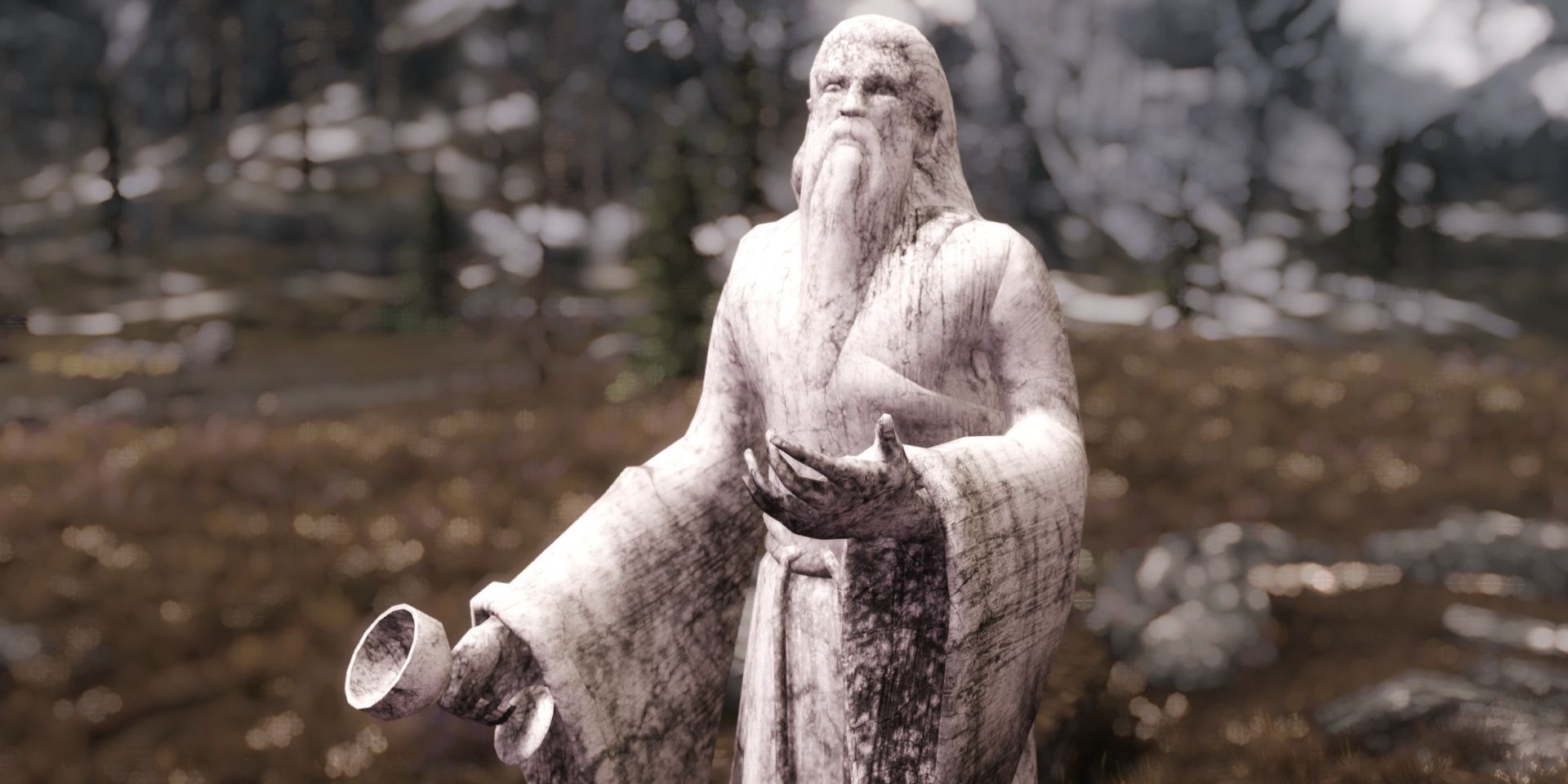Religion plays an important role in the world of The Elder Scrolls. Tamriel's diverse populations often subscribe to slightly different variations of the same religion. Some even choose to worship the malevolent Daedra, beings who inhabit the Planes of Oblivion. However, the vast majority still worship the Divines, celestial persons credited with the creation of the world.
The sheer volume of lore present in The Elder Scrolls can be difficult to decipher. Therefore, it's easy to miss certain interesting tidbits concerning the almighty Divines. Uncovering their history makes for some compelling reading indeed. These are the more thought-provoking details players may have overlooked.
7 They Were Born From Anu & Padomay
How exactly are gods born? Elder Scrolls lore tries to answer that question, though it can be a tad confusing. The Eight Divines are beings known as Aedra and are credited by the majority of Tamriel's inhabitants as the creators of Mundus, the physical world.
The Aedra themselves were born from Anu and Padomay, two primal forces bound in constant struggle. Anu represented stability while his brother Padomay embodied chaos. The two brothers fought each other in a violent confrontation. Their mingled blood, spilled during their encounter, is said to have resulted in the Aedra.
6 They Exist In A Weakened State
Various sources provided in The Elder Scrolls imply there were once many Aedra. However, when the Aedra started the process of constructing the physical world, they became bound to it as a result of their efforts. Eight principal architects of the world's creation are known to the people of Tamriel, who they regard as the Eight Divines. These Aedra who participated contributed parts of their very essence while creating the world.
Binding themselves to Mundus left the Eight Divines in a much-reduced state. As a result, they are unable to manifest physically in any direct way. Rather, they take on a more passive role, influencing events from behind the scenes. This sets them apart from the Daedric Princes, who can take corporeal form.
5 Lorkhan Convinced His Peers To Create The World
Lorkhan is sometimes referred to as the "Missing God." Many stories and legends swirl around this mysterious deity. Various cultures interpret Lorkhan differently and refer to him with contrasting titles. For example, the Nords of Skyrim call him Shor and regard him as one of the chief patrons of humankind.
Although the details are sketchy, Tamrielic lore holds that Lorkhan originally convinced the Aedra to create the physical world. How he accomplished this feat is a matter of debate. Certain myths purport that Lorkhan was eventually killed in some manner, possibly by Akatosh. Lorkhan's heart was supposedly cast into the earth, forming the Red Mountain in Morrowind.
4 Akatosh Formed The Covenant With The Empire
The rebellion of St. Alessia is an important event in Tamrielic history. Alessia forged a new religion throughout the course of her struggle against the Ayleids, at the center of which stood the Eight Divines. It combined elements of both the Nordic and Aldmeri religions.
To cement the new relationship, Akatosh established a divine covenant with Alessia and her descendants by mingling his blood with hers. The symbol of this union was the Amulet of Kings, a powerful artifact that aided in keeping the planes of Mundus and Oblivion separate. This explains why, in The Elder Scrolls IV: Oblivion, Akatosh assists Martin Septim when battling Mehrunes Dagon.
3 Various Analogues
The influence of the Eight Divines is very far-reaching. In fact, many of Tamriel's cultures worship the same beings, albeit with their own unique twists to them. Certain gods are sometimes placed higher in the pecking order depending on the culture.
For example, Nords and Imperials have historically paid much deference to the so-called Ninth Divine, Tiber Septim, also known as Talos. Elves, on the other hand, tend to reject Tiber Septim's divine status. These differences form one of the key conflicts present in The Elder Scrolls V: Skyrim. Nevertheless, despite some exceptions, most races in Tamriel worship the same eight gods, just with different names. Other cultures often incorporate a combination of Aedra and Daedra in their pantheons.
2 Arkay's Burial Law
A player doesn't need to wander the lands of Skyrim for very long to realize the importance of Arkay. This particular Divine is associated with the cycle of life and death. He is the patron deity of burials and funerary rites, which the Nords of Skyrim tend to take very seriously.
There's a reason why burial procedures are treated with such care. Worshippers of Arkay regard necromancy as one of the worst crimes that can be committed by a mortal. As such, Arkay's Law, when performed correctly by a priest, actually prevents a corpse from ever being raised through the use of necromancy. Thus, Arkay's blessing is enough to ward off such dark magic.
1 Stendarr Loves Mortals Unconditionally
Every Divine has their own sphere of interest. Stendarr is described as the God of mercy and charity. Followers and worshipers are taught to be compassionate toward their fellow men, especially in cases involving the downtrodden and needy.
Stendarr is unique in that his love for humankind is unconditional. Individuals, even previously wicked ones, willing to seek his blessing can be granted his favor. Stendarr's powers are related to healing and restoration magic, where even the severely injured and dying can be saved through his divine intervention.

